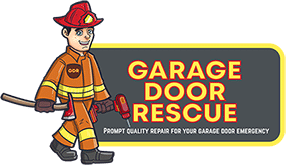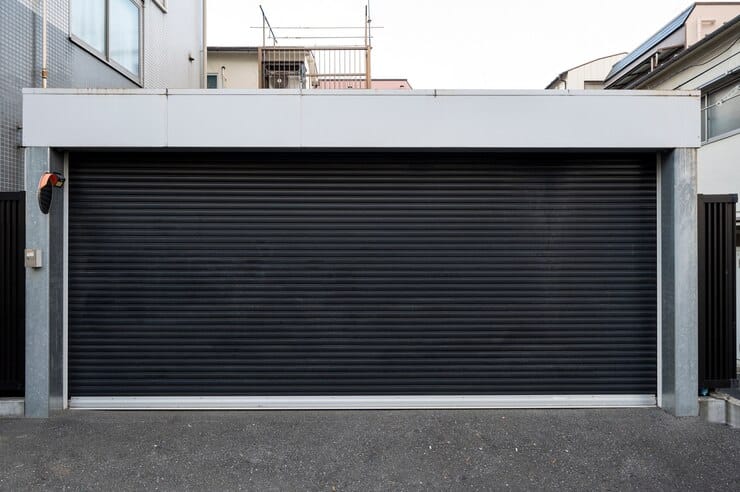A noisy garage door can be quite a nuisance, especially when you’re trying to enjoy some peace and quiet at home. Imagine hearing the loud creaks and rattles echoing throughout your house whenever someone comes or goes. It’s a common issue that many homeowners face but often overlook. Understanding why your garage door makes so much noise is the key to finding a solution and ensuring a quieter atmosphere for your household.
Many factors contribute to a garage door’s clamor, and they can vary from something as simple as loose hardware to more complex problems like worn-out rollers. Knowing the root cause can help you address the noise effectively and maintain a quieter, more pleasant home environment. Let’s explore some practical tips and fixes that can help you resolve the noise issue and improve the overall performance of your garage door.
Identify the Source of the Noise
Figuring out why your garage door is noisy is the first step to solving the problem. Different sounds often indicate specific issues, and paying attention to those sounds can save you both time and frustration.
1. Worn Rollers: If you hear a grinding noise, this might be due to worn rollers running along the metal track. These rollers can become worn or broken over time, causing noisy operation.
2. Loose Hardware: A rattling sound might signal loose hardware. Over time, the nuts and bolts holding the door together can loosen due to the constant motion and vibration.
3. Poor Lubrication: Squeaking and squealing noises often mean the moving parts need lubrication. Without proper lubrication, the metal parts can rub against each other, creating noise.
4. Misaligned Tracks: Sometimes, door tracks can become misaligned, leading to a louder-than-usual operation. This can be identified by a hard thumping sound or difficulty moving the door smoothly.
Understanding these causes puts you in a stronger position to address the noise effectively. If you’re unsure, it’s always wise to call in a professional who can pinpoint the issue quickly.
Simple Fixes for a Quiet Garage Door
Once you’ve identified the source, you can try a few simple fixes to quiet your garage door. These tasks are easy to do and can make a big difference to the noise levels.
- Tighten Loose Parts: Using a wrench, go over all the nuts and bolts on your garage door and tighten any that are loose. This may include hinges, brackets, and other hardware components.
- Lubricate Moving Parts: Apply a high-quality garage door lubricant on the tracks, rollers, and springs. This helps reduce friction and noise, making the door operate more smoothly.
- Replace Worn Rollers: If you notice that the rollers are the problem, consider replacing them with nylon rollers. They’re quieter and require less maintenance than the traditional steel ones.
These straightforward solutions not only help in quieting a noisy garage door but also extend its lifespan, ensuring a smoother operation for years to come. Always remember, if the problem persists despite your best efforts, seeking professional help is the way to go.
When to Call a Professional Technician
While some noise issues with your garage door can be handled with simple fixes, there are times when it’s best to call a professional. Here are some signs that might indicate a larger problem requiring expert intervention:
- Persistent Noises Despite Fixes: If you’ve tightened every bolt and lubricated all the moving parts yet the noise persists, there may be a deeper issue that needs attention.
- Unusual Noises Like Grinding: This could signal problems with the door’s motor or the alignment of the system. Such issues often require specialized tools and expertise to resolve.
- Door Movement Issues: If the door sticks, jerks while moving, or doesn’t open and close smoothly, it’s time to seek professional help. These signs can indicate problems with balance or tension that require a trained eye.
Getting a professional involved ensures the problem is diagnosed and resolved efficiently, preventing further damage and additional costs.
Preventive Measures for Future Quietness
Once your garage door is back to its quiet self, you’ll want to keep it that way. Here are some preventive steps to maintain the tranquility:
- Regular Maintenance Checks: Set up a routine to periodically check all the parts of your garage door. Look for looseness, wear, or any signs of rust. This can help you catch potential noise-causing problems early.
- Keep it Lubricated: Make lubrication part of your maintenance routine. A well-lubricated door not only operates quietly but also lasts longer.
- Professional Inspections: Having a professional inspect your garage door annually can prevent minor issues from turning into significant problems. Their trained eyes can spot what you might miss.
Taking the time for these small maintenance tasks helps ensure noise doesn’t sneak back into your life.
Ensuring Quietness Year-Round
A quiet garage door offers peace in more than one way. It reflects proper upkeep and attention to the small details that many homeowners often miss. Embracing these tips ensures that your garage door remains tranquility-friendly throughout the year.
Regular attention and care for your garage door not only reduce noise but also extend its life, improve safety, and maintain the overall aesthetic of your home. Enjoy a peaceful home environment that starts right from your driveway!
Quieting your garage door is a step toward enjoying peace at home, but maintaining that quiet means regular care and professionalism. For residents of Fort Worth and Dallas looking to keep their garage doors in top condition, consider exploring more about residential garage doors and how Garage Door Rescue can assist with upkeep and repairs. A well-tended door enhances the beauty and serenity of your property while ensuring smooth operation all year long.

